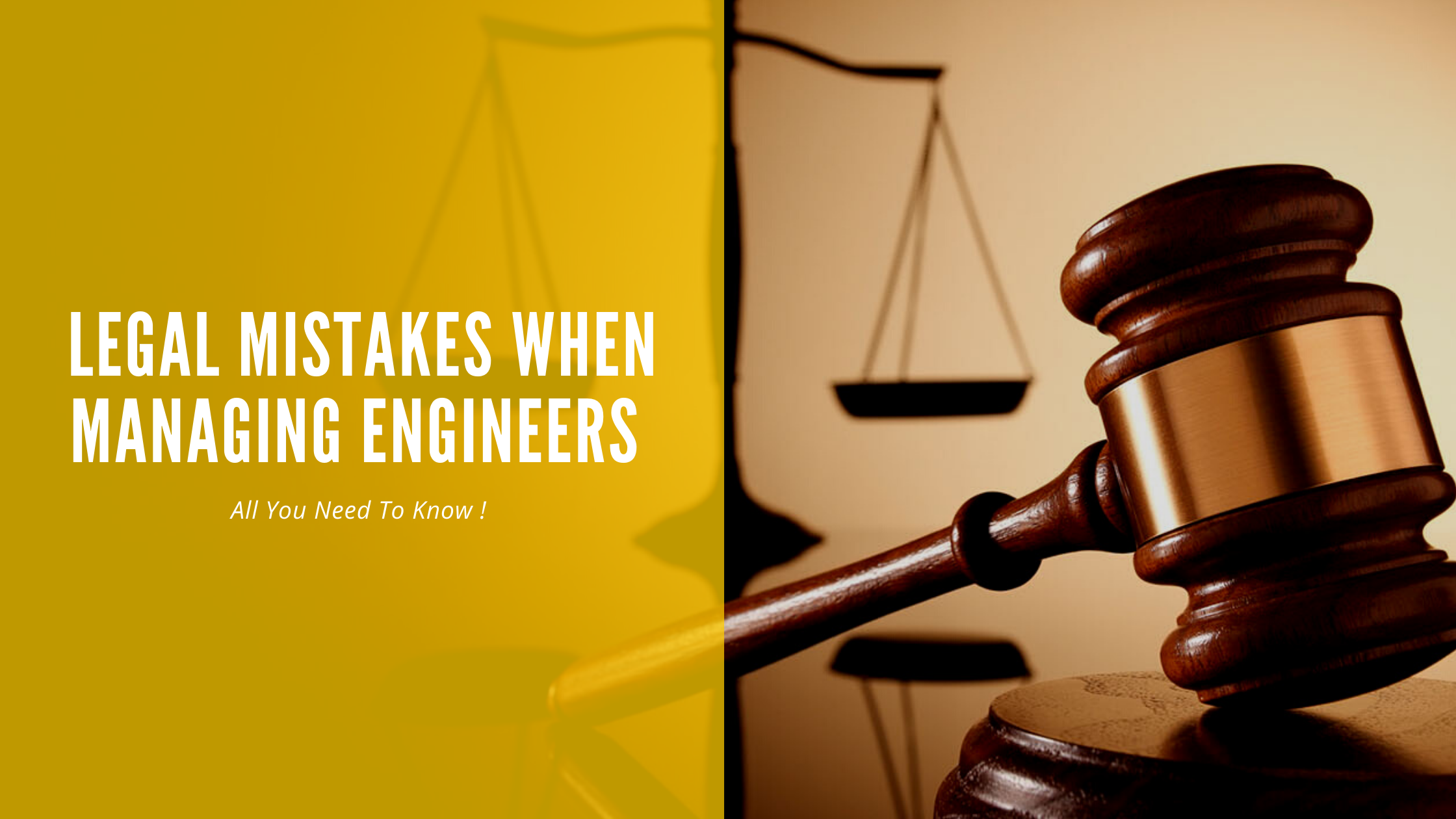How to Avoid Legal Mistakes When Managing Engineers

In any working environment, an employment contract binds both parties together. Such an agreement empowers the employer to terminate staff, reassign, transfer and deduct wages at their will. There is a high probability that this situation might change in a little while.
With new federal and state laws coming up, employees might enjoy a breath of fresh air. Contrarily, reckless employers can easily find themselves in court corridors for prejudice against their staff.
Like any other industry, engineers feel the pinch of these employment laws to its full extent. Allow us to dive straight to vital legal mistakes that an engineering company should steer clear of.
Decline Paying Overtime
Unless there is an exemption, federal laws are crisp, clear on overtime payment to employees. Usually, the law demands companies to pay overtime for any duration that surpasses the mandatory 40 hours per week.
Depending on location and state requirements, salaried staff deserves overtime payment as well. However, engineering falls under the exempt professional employees. These are intellectuals who accomplish tasks that require advance training.
According to the US Department of Labor regulations, engineers with bachelors and masters only qualify as an exempt if the training impacts their professional life. In such a scenario, salaried exempt employees do not receive overtime if they perform moderate high-level tasks that involved judgment and diplomacy.
Despite complex bureaucracies governing employment rights with engineers, talk to qualified employment lawyers to avoid litigations and identify with regulations that govern your state.
Negligent Hiring
Failure to make the right placement is an ingredient to disaster. Not only does unqualified staff offer inferior service but also the negative input affects the entire performance of a business. As an employer, it is vital to conduct intensive background checks before hiring. If possible, you can engage recruitment experts to get the best bunch for you. This approach gives you an upper hand if a negligent lawsuit arises in the future.
A negligent legal claim comes from an individual or employee to an employer after fallout. For instance, if an employee receives a dismissal letter for substandard work, they can forward their complaints to employment lawyers. Basically, the argument revolves around hiring staff without prior knowledge of their experience and capability. In engineering industry, due diligence involves a total scrutiny of candidate’s background lest you pay dearly for lack of it.
Poor Assumptions
For an industry that thrives through strict deadlines, time keeping and optimal customer service, you cannot make a mistake on unverified information. While most organizations overlook negligible assumptions, eventually, they pave way for colossal destruction later.
Imagine a scenario where structural plans proceed to the next level with slight error. After execution, the blunder certainly shows up its ugly face leading to huge losses or safety compromise.
Remember that for engineers, every tiny aspect matters. For example, a slight crack only gets worse with time. So, give ample time and attentiveness to any task at hand. Even if you have to beat deadlines, it is better to delay for a couple of days rather than offering unsatisfactory results likely to land you in court.
Communication Breakdown
Poor communication or actually lack of it translates to half-baked engineering tasks. As a matter-of-fact, almost all reworks result from inferior communication among people involved. In the process, project leaders may spend hours handling conflict amongst workers and rework issues.
Not forgetting the legal aspect, miscommunication jeopardizes the final work, project timeline, safety and set budget. An upbeat approach ensures that employee start on a similar pedestal. Ensure that you brief them on the practical and theoretical part of the project.
Finally, give your staff space to air out their fears and worries without making judgments. This helps in creating an ideal environment that motivates workers to give their best.
Insufficient Business Knowledge
A thriving engineering business goes beyond the technicalities. It may not make sense to invest in machinery and heavy equipment if you cannot plan or manage your expenditure. Additionally, each product has a distinct budget that you must follow to the letter.
Keep in mind that in a competitive industry, it is crucial to learn how to remain afloat. What’s more, online marketing strategies perform magic for a flourishing brand. Before you execute your engineering duties, start as a convincing marketer and an acquainted accountant.
Get a Steadfast Employment Lawyer
Even in its simplest form, legal language is a hard nut to crack for most people. To add salt to the injury, the complex nature in engineering makes it almost impossible for companies to adhere to all employment regulations set.
Legal representation remains the surest way to evade draining proceedings. In case of litigation, your employment lawyer boldly denies charges and file motions on your behalf. Also, they help to dissect complex employment laws and agreements while guiding you on the best way forward.
